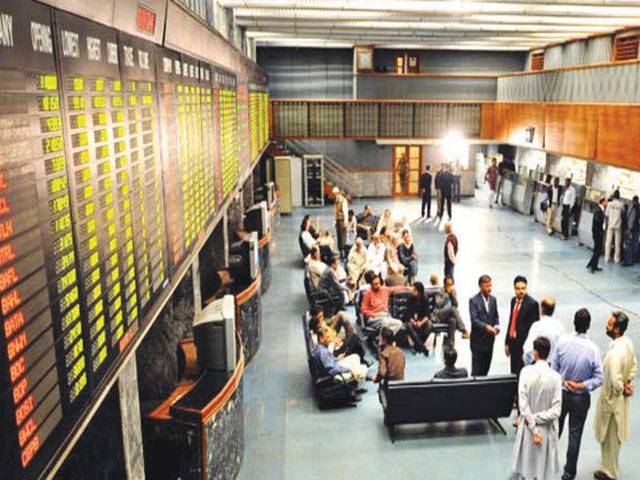LAHORE - The KSE-100 index of Pakistan Stock Exchange continued its downward trajectory on Monday, shedding 1,328 points to sink to 27-month low.
Experts said that KSE 100-index registered largest single day loss of 3.4 percent after 15 months, where index closed below 38000-point level at 37,898 points. This is because the newly elected government has failed to entice investors amid lack of clarity over decision to enter International Monetary Fund (IMF) programme.
On the economic front, Asian Development Bank (ADB) has expressed willingness to provide $7.1 billion in financing to help Pakistan achieve inclusive and sustainable growth over the next three years. Furthermore, final negotiations between the Financial Action Task Force (FATF) and the government have begun in the federal capital on Monday.
All the sectors came under the hammer where financials, cements, power and energy stocks closed in the red. The top stocks HBL (-5 percent), UBL (+5 percent), LUCK (-5 percent) DGKC (-5 percent) closed in the lower circuit, respectively. The major heavyweights namely HBL (-5 percent), PPL (-2.85 percent), OGDC (-2.38 percent), ENGRO (-2.76 percent), MCB (-1.19 percent), UBL (-5 percent), FFC (-4.77 percent) and POL (-3.88 percent) cumulatively contributed -491 points to the index. Traded volumes slightly picked up by 21 percent DoD to 186 million shares while value traded increased to $51 million. Top volume stocks were BOP (-7.75 percent) and KEL (-4.60 percent). Moving forward, it is expected that investor's sentiment will remain dull. Therefore, the KSE-100 performance will likely remain under pressure amid selling from foreign investors.
Stock market experts at Topline Security noted that market is down by 28 percent from its peak of May 2017 where KSE-100 index has lost $36 billion in its market capitalization, which is currently at $63 billion. Monday was the 6th consecutive trading session in which market recorded negative returns, taking these 6 sessions losses to 3,100 points (or 7.8 percent). They said this volatility in the market was mainly due to the reports of a delay in the International Monetary Fund (IMF) bailout package till December.
Among top laggards were commercial banks, oil & gas exploration and fertilizer sector, which pulled down index by 713 points. Decline in commercial banks was led by HBL (-5 percent) and UBL (-5 percent), contributing 185 points to index fall.
Heavy volumetric trading was witnessed in small cap stocks, where, BOP, KEL and WTL topped volume leaders chart with cumulative traded volume of 41m shares. This led overall volumes to grow at 21 percent while on the other hand, traded value was up by 17 percent to $51m.
Experts said that after weeks of dithering, Pakistan has decided to approach the International Monetary Fund (IMF) for $8-10bn program to overcome the acute financial problems and improve its credibility at the international level. They said that Finance Minister Asad Umar, along with his team, had briefed the prime minister on the country’s financial position and presented a plan to approach the IMF for a package the ministry is reluctant to call a “bailout”.
Financial experts quoted the World Bank as saying that Pakistan’s ability to withstand external shocks has diminished and risks will remain predominantly on the downside with declining reserves and elevated debt ratios. Appropriate policy responses to correct these imbalances and increased buffers to absorb future shocks will reduce these risks and support a positive growth outlook, they added.
They said that a seven-member Asia Pacific Group (APG) evaluation team on money laundering has arrived in Pakistan to review compliance of country on Financial Action Task Force (FATF) Action Plan and global obligations against money laundering and terror financing, which will also have direct effect on stock market.






